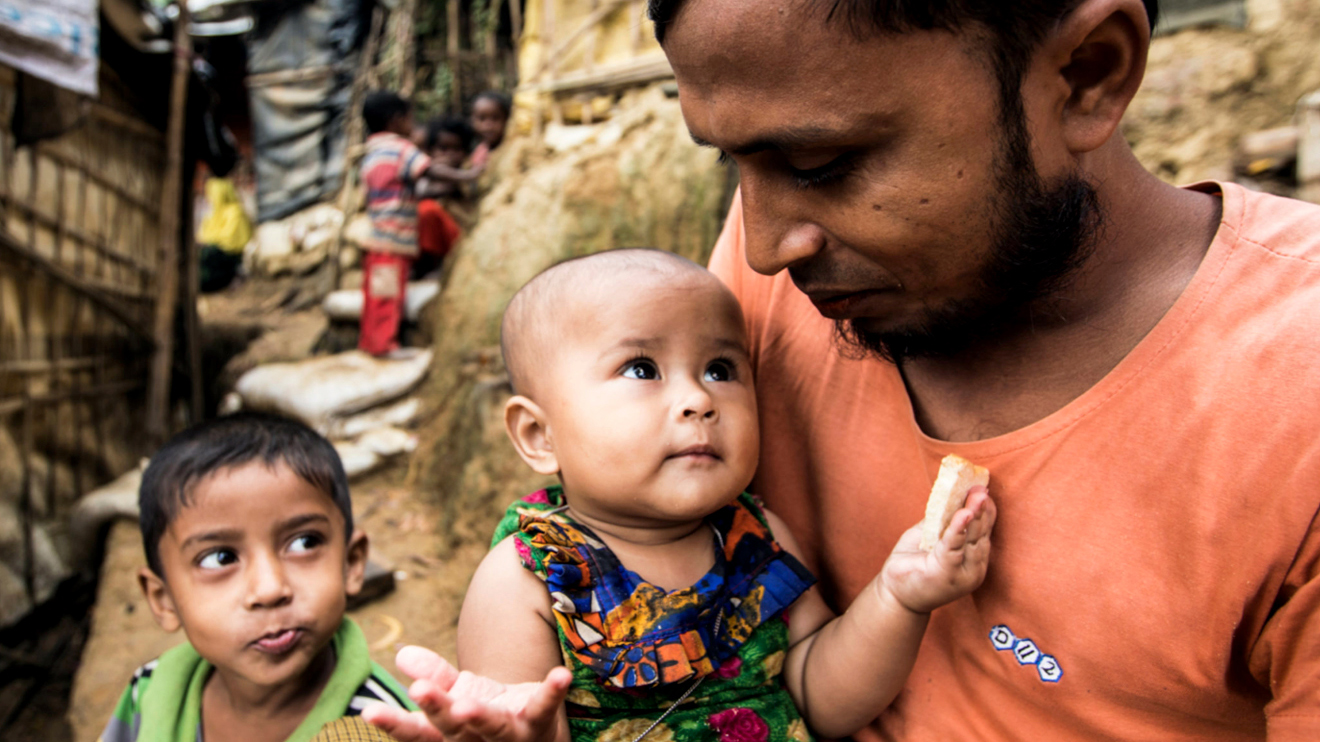Find out more in
Filippo Grandi has devoted more than three decades to easing the suffering of refugees: “My pride after all these years is that the center of this effort of my lifetime has been on people, and especially on the people that suffer most in the world, including refugees.”
Now, shortly before his term comes to an end, and as more than 117 million people worldwide remain forcibly displaced, the long-serving UN High Commissioner for Refugees is welcoming a rare moment of hope for one of the world’s largest refugee populations. “Home means your house, your family, your friends, your work, your school, and it is fantastic when, like in Syria […] people can go back to their homes. This is what most refugees want.”
UNHCR, the UN Refugee Agency, not only helps those who flee war and persecution, but also those who choose to go home when peace returns. Appearing on Awake at Night for a second time, Filippo Grandi reflects on the dangers of divisive politics, the human cost of painful budget and staff cuts, and shares his hopes and dreams for life after the UN.
The UNHCR Nansen Refugee Award is an annual humanitarian honour presented by the UN Refugee Agency to an individual, group or organization that has gone above and beyond the call of duty to protect and assist refugees, displaced and stateless people around the world. The 2025 winners include heroes from Cameroon, Tajikistan, Iraq, Mexico and Ukraine, whose efforts have transformed the lives of tens of thousands of people through evacuation, integration and sustained support for refugees. Watch the 2025 ceremony with appearances by the regional winners and performances by award-winning artists.
From today until 17 December, the UN Refugee Agency (UNHCR) is hosting the Global Refugee Forum Progress Review 2025 in Geneva, Switzerland. The meeting brings together senior government officials and key stakeholders to assess progress in implementing pledges made at the 2019 and 2023 Forums. This high-level event aims to review global, regional, and country-level stocktaking efforts; strengthen support for refugees and host countries, accelerate pledge implementation through a multi-stakeholder approach; and identify priority areas requiring further action ahead of the 2027 Forum.
One month into the ceasefire, Gaza’s displaced families are experiencing brief relief but remain exposed to the cold and devastation as urgent humanitarian access and shelter support are desperately needed.
In Nigeria’s Gbajimba camp, Shiminenge overcomes disability and displacement, leading advocacy that helped transform the site with accessible shelters, sanitation, and mobility support, restoring dignity for many.
This episode from ILO's PROSPECTS podcast explores how the private sector can drive economic inclusion of young refugees by expanding access to decent work and protecting their rights at work. Roman Bojko, Human Rights and Social Impact Leader at Ingka Group shares more about the company’s global Skills for Employment initiative and lessons learned from integrating refugee talent across 26 countries. The conversation highlights how hiring refugees is not just the right thing to do - it’s also good for business, fostering innovation, resilience, and inclusion in the workplace.
A journey from fleeing conflict to playing at the highest levels of basketball shows what’s possible when refugees are given the opportunity to thrive.
After fleeing panic during an earthquake, Nicaraguan migrant Tamara Baltodano found new purpose in Peru, training to save lives and proving that courage knows no borders.
Life in refugee camps is harsh for girls, marked by overcrowding, lack of privacy, and limited access to food and basic necessities. They face heightened risks such as sexual violence and child marriage, alongside disrupted health services and education. Despite these challenges, girls are advocating for change, using their experiences to combat harmful practices and promote a future filled with peace and dignity. The United Nations Population Fund (UNFPA) empowers these girls and helps them build a more hopeful future.
Eight years after the forced mass displacement of the Rohingya community due to violence in Myanmar's Rakhine State, their circumstances continue to deteriorate. Over the past year and a half, 150,000 Rohingya — a mainly Muslim minority in a predominantly Buddhist country — have fled to neighbouring Bangladesh, marking the largest influx since 2017. In light of this dire situation, the UN Secretary-General hopes that the High-Level Conference on Rohingya Muslims and Other Minorities in Myanmar draws renewed international attention to the urgent need for long-term solutions. Follow the event live.
In war-scarred Tigray, displaced families at Maidimu navigate profound loss with dignity, turning survival into renewal through water, art, play, and quiet acts of resilience.
The International Organization for Migration (IOM) and the UN Refugee Agency (UNHCR) have launched a "train-to-hire" program for refugees in the Asia-Pacific region, funded by the Australian Government for an initial 22-month period. This initiative aims to enhance refugee skills and connect them with international job opportunities, addressing labor market gaps and promoting self-reliance. It seeks to strengthen collaboration among UN agencies and facilitate safe migration, leveraging refugees' skills to reduce reliance on irregular routes. Despite significant numbers of skilled refugees, barriers to employment remain, making this targeted training vital for aligning talent with labor needs.
UNHCR Goodwill Ambassador Maya Ghazal has become the world’s first female Syrian commercial pilot from a refugee background, having officially received her “wings” to fly Boeing 737 jets as a second officer. Flight training is a demanding and competitive process, and only 5 per cent of the world’s pilots are women. Having arrived in the UK ten years ago, Ghazal taught herself English and graduated with a degree in aviation engineering, then completed a 19-month intensive cadet training programme. She advocates for safe legal routes and education for refugees.
UNICEF’s Learning to Earning programme is empowering young refugees and vulnerable youth like Taima and Touqa with skills and opportunities to build brighter, more resilient futures.













